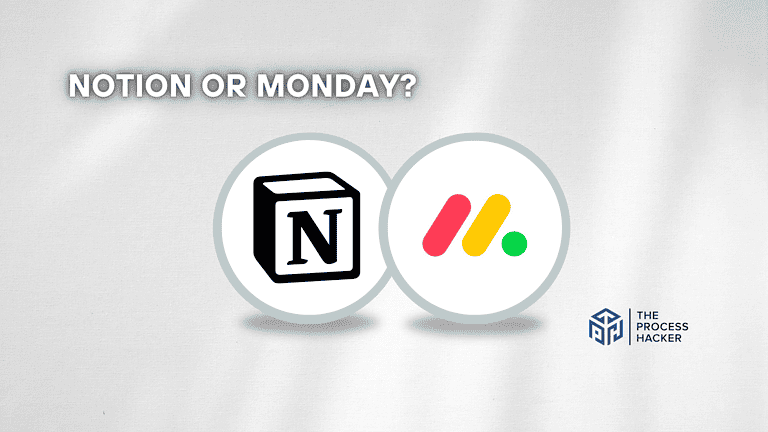The Ultimate Guide on How to Scale a Business
Think scaling is only for big corporations? Think again. Whether you’re a startup or an established enterprise, scaling is a crucial phase in the business lifecycle. It’s about optimizing your resources, streamlining your operations, and expanding your reach while maintaining profitability.
Scaling isn’t just about growth; it’s about strategic expansion that sets the stage for long-term success. Today, the business landscape is evolving faster than ever before.
To stay ahead of the curve, you need a roadmap that guides you through the complexities of scaling. This ultimate guide provides actionable insights and proven strategies to help you navigate the path to sustainable growth.
What is Scaling a Business?
Scaling a business refers to handling increased customer demand and expanding your operations without sacrificing efficiency or profitability. It’s about creating a sustainable growth model to reach a larger audience, generate more revenue, and maximize your impact.
Now, you might wonder, what’s the difference between growth and scaling? While they both involve expansion, there’s a subtle yet crucial distinction.
Growth typically involves adding more resources—such as employees, equipment, or physical space – to accommodate an increase in demand. This can be effective in the short term but often leads to diminishing returns as you hit a ceiling on how much you can expand without significantly increasing costs.
Scaling optimizes your existing resources and processes to achieve exponential growth. It’s about finding innovative ways to do more with less, leveraging technology, and building a scalable infrastructure supporting rapid expansion.
Think of it this way: growth is like adding more fuel to a fire, while scaling is like building a bigger fire pit. One focuses on increasing input, while the other focuses on increasing capacity.
Why You Should Know How to Scale a Business
Scaling effectively means setting up a robust framework that supports growth while maintaining operational control. It ensures that your business doesn’t just grow but grows smartly, minimizing risks and maximizing potential. This strategic expansion is crucial for longevity and relevance in any industry.
Let’s delve into the key reasons why knowing how to scale a business is so important:
1) Increased revenue and profitability
Scaling allows you to reach a wider audience and generate more sales, increasing revenue and profitability. By optimizing your processes and leveraging technology, you can achieve higher output with lower input costs, maximizing your profit margins.
2) Improved efficiency and productivity
Scaling forces you to streamline your operations and eliminate inefficiencies. You can By identifying bottlenecks and implementing scalable solutions, yourove productivity and achieve more with the same resources by idenanced market position and competitiveness
Scaling allows you to expand your market share and establish a stronger presence in your industry. Offering a wider range of products or services can attract more customers and outpace your competitors.
4) Greater resilience to market fluctuations
A scalable business is better equipped to withstand economic downturns and market fluctuations. You can Withsified revenue stream and adaptable infrastructure.
Ultima, you can navigate challenges and emerge strongertely, proper scaling leads to sustainable growth. It’s not about growing business at any cost but about growing strategically and building a solid foundation for long-term success.
How to Scale a Business: The Ultimate 7-Step Strategy
Scaling a business requires a strategic approach and careful execution. It’s not a one-size-fits-all process, but certain key principles and steps can guide you toward sustainable growth.
Here’s a unique 7-step business strategy that outlines the essential elements for scaling success:
Step 1: Develop a Rock-Solid Business Plan
A well-crafted business plan is the foundation of any successful scaling endeavor. It acts as a roadmap, guiding your decisions and ensuring you can achieve your growth goals. Think of it as your blueprint for success, providing clarity and direction as you navigate the complexities of scaling.
Here are the key components to include in your business plan:
- Market analysis: Conduct thorough research to understand your target market, identify growth opportunities, and assess your competition. This will help you tailor your scaling strategy to meet your customers’ specific needs and preferences.
- Financial projections: Create realistic financial forecasts that outline your expected revenue, expenses, and profitability as you scale. This will help you secure funding, manage cash flow, and make informed decisions about resource allocation.
- Growth targets: Set clear and measurable goals for your scaling efforts. This will provide focus and motivation, allowing you to track your progress and adjust your strategy as needed.
- Resource allocation: Identify the resources needed to achieve your scaling goals, such as funding, personnel, technology, and infrastructure. This will help you plan ahead and avoid potential bottlenecks as you expand.
By investing time and effort into developing a comprehensive business plan, you’ll set yourself up for success from the outset. It will provide a solid foundation for your scaling strategy, ensuring that you have a clear vision, realistic expectations, and a well-defined path to achieve your growth objectives.
Step 2: Optimize Your Internal Processes
To scale your business efficiently, streamlining internal processes is essential. This step focuses on enhancing operational efficiency, which is crucial for managing increased workload and complexity as your business grows.
Streamlining Operations for Efficiency
The first order of business is to review and refine your operational processes. Look for bottlenecks, redundant tasks, and any procedures that can be simplified or eliminated. Streamlining these processes helps reduce waste—be it time, resources, or effort—thereby enhancing overall efficiency.
Implementing Automation and Technology
Leveraging technology is key to scaling. Automation tools can handle repetitive tasks, freeing up your team members to focus on more strategic activities that contribute to business growth. From customer relationship management (CRM) systems to financial software and project management tools, the right technology stack can transform your business operations.
Standardizing Procedures Across the Organization
Consistency is vital as you scale. Standardizing procedures across various departments ensures everyone is on the same page, which is especially important as your team grows.
Clear, standardized procedures improve communication, reduce errors, and provide a uniform quality of work across the organization. This standardization also makes onboarding new employees easier and maintains operational clarity, regardless of business size.
Step 3: Build a Scalable Organizational Structure
As your business grows, so too must your organizational structure. A rigid, hierarchical structure can quickly become a bottleneck as you scale. It’s important to design a flexible team structure that can adapt to change and accommodate growth.
Consider implementing a flat or matrix structure that encourages collaboration and empowers employees to take ownership of their work. This can foster a sense of autonomy and agility, allowing your team to respond quickly to new challenges and opportunities.
When it comes to hiring for scaling, focus on attracting top talent who are adaptable, motivated, and aligned with your company’s values. Look for individuals who thrive in a fast-paced environment and are eager to contribute to your growth journey.
Remember, a company’s culture plays a crucial role in scaling success. A positive and supportive culture can foster employee engagement, boost morale, and attract top talent. It’s important to cultivate a culture that encourages innovation, collaboration, and continuous learning.
Cultivating Leadership Skills
Scaling a business requires strong leadership at all levels. As the business grows, your role as a leader will evolve. You’ll need to develop your management abilities, including delegation, communication, and decision-making. Effective leadership inspires and motivates your team, fostering a sense of ownership and accountability.
Additionally, it’s crucial to empower team members to take on leadership roles within their areas of expertise. This not only distributes the leadership burden but also fosters a culture of growth and development within the organization. As your team members step up and take on more responsibility, they become valuable assets in driving the successful company forward.
Step 4: Focus on Customer Relationships and Loyalty
As you scale as a business owner, it’s easy to get caught up in the excitement of growth and expansion. However, it’s crucial not to lose sight of the most important aspect of your business: your customers. Maintaining strong customer connections is essential for sustainable growth.
Happy customers are more likely to become repeat buyers, refer others to your business, and provide valuable feedback. By prioritizing customer satisfaction and loyalty, you build a solid foundation for long-term success.
Here are some strategies for improving customer experience as you scale:
- Personalize interactions: Even as your customer base grows, strive to maintain a personal touch. Use data and technology to tailor your communication and offerings to individual needs and preferences.
- Provide exceptional customer service: Make it easy for customers to get help when they need it. Offer multiple channels for support, such as phone, email, and live chat, and ensure that your team is responsive and knowledgeable.
- Go above and beyond: Surprise and delight your customers with unexpected gestures of appreciation. This could involve sending personalized thank-you notes, offering exclusive discounts, or providing early access to new business products or services.
Customer feedback is a goldmine of insights for growth. Encourage customers to share their thoughts and experiences and actively listen to their suggestions. Use this feedback to identify areas for improvement, refine your offerings, and create a customer-centric approach to scaling.
Step 5: Implement Effective Marketing Strategies
Marketing is the lifeblood of any business, and it becomes even more critical when you’re looking to scale. As you expand your operations, you’ll need to reach a wider audience and attract new customers. That’s where effective marketing strategies come into play.
Start by developing a scalable marketing plan that aligns with your growth goals. Identify your target audience, craft compelling messaging, and choose the right channels to reach them. A well-defined marketing plan will help you allocate your resources effectively and maximize your return on investment.
Content marketing and search engine optimization are powerful tools for attracting organic traffic and building brand awareness. Create high-quality and compelling content that educates, informs, and engages your audience. Optimize your website and content for search engines to ensure that you’re visible to potential customers.
As you scale, consider expanding into new markets and target audiences. Conduct market research to identify untapped opportunities and tailor your marketing metrics and efforts to reach these new segments. Diversifying your customer base can help mitigate risks and create new avenues for growth.
Step 6: Secure Funding and Manage Finances
Scaling a business often requires additional capital to invest in new resources, technology, and infrastructure. It’s important to explore various options for financing your growth, such as venture capital, angel investors, bank loans, or crowdfunding. Choose the funding option that best suits your needs and risk tolerance.
As you expand, managing cash flow becomes even more critical. Rapid growth can strain your finances, so it’s important to clearly understand your income and expenses. Create a detailed budget, track your cash flow regularly, and maintain a healthy cash reserve to handle unexpected challenges.
Implementing key performance indicators (KPIs) is essential for monitoring your financial health and ensuring that you’re on track to achieve your growth goals. Track metrics such as revenue growth, profit margins, customer acquisition cost, and customer lifetime value. These KPIs provide valuable insights into your business performance and help you make informed decisions about resource allocation and strategic planning.
Step 7: Embrace Technology and Innovation
Technology is a powerful enabler of scalability. You can automate tasks, streamline processes, and gain valuable insights into your business operations by leveraging the right tools and software. Embracing technology allows you to do more with less, freeing up resources and enabling you to focus on strategic growth initiatives.
When choosing technology solutions, prioritize scalability and flexibility. Look for tools that can grow with your business and adapt to your evolving needs. Cloud-based solutions are often a good choice, offering on-demand scalability and accessibility from anywhere.
Investing in the right technology is not just about buying the latest gadgets; it’s about finding solutions that integrate seamlessly with your existing systems and processes. Make sure that your team is trained and comfortable using the new tools to maximize their effectiveness.
Finally, fostering a culture of innovation is essential for long-term success. Encourage your team to experiment, explore new ideas, and challenge the status quo. By embracing a growth mindset and staying ahead of the curve, you’ll be well-positioned to adapt to change and seize new opportunities as they arise.
Key Considerations for Successfully Scaling a Business
As you scale, it’s crucial to keep the core values and mission of your business at the forefront. These elements are the guiding stars that will keep your business aligned with its original purpose and help maintain brand identity and customer trust, even as you expand.
Scaling increases complexity and can lead to a dilution of quality if not managed properly. Implement robust quality control processes to ensure that your products or services maintain their standards. Regular audits, customer feedback loops, and continuous improvement programs are vital to sustaining quality as you grow.
The ability to adapt quickly to market changes and evolving customer needs is essential for scaling success. Stay agile by keeping an eye on market trends and being ready to pivot strategies or innovate your offerings in response to new information and customer insights.
Taking it to the Next Level: How to Achieve Sustainable Growth
Once you’ve successfully scaled your business, the next challenge is to maintain that growth and achieve long-term success. Here are some strategies to consider:
Focus on innovation
Continuously look for ways to improve your products or services and stay ahead of the competition. Invest in research and development, encourage creativity within your team, and be willing to take calculated risks.
Expand into new product lines or services
Diversifying your offerings can help you reach new markets and create additional revenue streams. Conduct thorough market research to identify opportunities and ensure that any new ventures align with your core competencies and brand identity.
Consider international expansion
If your business has the potential to thrive in global markets, explore opportunities for international expansion. This can open up new customer bases and drive significant growth, but it’s important to carefully research and plan your entry into new territories.
Alternatives to Traditional Business Scaling
Traditional scaling isn’t the only path to growth. Consider these alternatives that might align better with your small business model and goals.
Franchising
By franchising your business model, you can expand more quickly without the commensurate rise in overhead and resource allocation typically required for scaling. Franchising allows you to leverage other entrepreneurs’ capital and dedication while maintaining control over your brand’s standards and direction.
Licensing
Licensing your product or brand can provide a passive income stream and expand your market presence with relatively low investment. It involves granting rights to other companies to produce or sell your products under your brand name.
Strategic Partnerships and Joint Ventures
Forming strategic partnerships or entering into joint ventures can allow you to combine resources, expertise, and market reach with other entities. This collaboration can lead to enhanced competitive advantage, shared risk, and accelerated access to new markets.
Final Thoughts on How to Scale a Business
Scaling a business is an exhilarating journey that requires strategic planning, agile adaptation, and a steadfast commitment to your core values.
As you embark on this path, remember that successful scaling is not just about growth but smart growth. It involves enhancing your operational efficiencies, nurturing a strong team with solid leadership, and continuously adapting to the ever-changing market demands.
Embrace technology and innovation to streamline processes and expand your offerings, and consider alternative strategies like franchising or forming strategic partnerships to diversify and strengthen your business model.
By focusing on quality, aligning with your mission, and staying true to your brand’s essence, you set the stage for sustainable success. Scaling your business is not just a challenge; it’s an opportunity to redefine your industry and leave a lasting impact.







